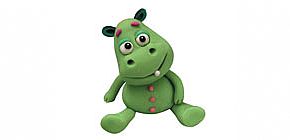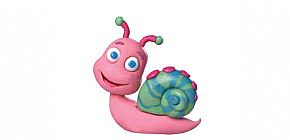Constipation in Toddlers - How to Prevent it
.jpg) |
|
There are quite a few misperceptions about infants and constipation. The toddler’s intestines work slower than those of an adult, and it can therefore be absolutely normal for them to have a bowel movement every few days. That being said, if your little one is suffering, or if their bowel movements cause them paid, there are way to help them feel relief. What causes constipation, what other phenomena does it cause and how you you prevent it?
Read on to learn more.
There’s no reason to worry if and when your infant doesn’t relieve their bowels on a daily basis. Generally speaking, there is a huge discrepancy between what is considered a “normal” bowel movement frequency in newborns through four-month-olds, and what is considered “normal” for infants aged four months and up. If your toddler has bowel movements every few days, but their stool is soft and exits the body easily, it can be considered normal. If, however, you noticed one of the following symptoms, your little one may suffer from constipation:
-
Crying while passing stool
-
Hard and dry stool
-
Blood spots in the stool
-
Black stool
-
A week goes by between bowel movements and your child is younger than 4 months old, or they do not relieve themselves for over three days and are older than 4 months of age.
What causes constipation in infants?
Constipation is generally caused when the intestines aren’t doing what they’re supposed to do, and rarely indicate a physiological issue. The most common causes for improper intestinal activity in infants are:
-
Insufficient drinking of liquids
-
Preparation of formula in a way that contradicts the listed instructions
-
Changes to eating habits and the introduction of new types of food
-
Consumption of an insufficient amount of dietary fibers
-
A change to the type of formula provided
-
Medications that list constipation as a side-effect, such as iron supplements
Chain reactions - What other issues can constipation cause?
When your toddler begins to suffer from constipation, if proper treatment is not provided, the situation can worsen and even cause other health issues to develop. Constipation causes a buildup of large amounts of stool in the intestines - which makes it even harder for the child to relieve themself. As a results, fissures can appear at the site of the anus, and when these fissures are irritated
and bleed, your child’s pain is intensified. The worse the constipation gets, the more likely the child is to hold their bowels in, suffer from stomach aches and avoid eating.
How to relieve your toddler’s constipation
If your little one suffers from constipation, know that you can relieve their pain and even help treat the phenomenon, in a number of ways:
-
Move your child’s legs in circular motions - Lay them on their back, hold their legs and gently move them in quick circles. This motion will cause the intestinal muscles to move and start to act.
-
Gently massage your child’s belly - Start at the navel and massage the belly in a clockwise motion, moving outwards. A cream or oil can help make the massage even more enjoyable. Continue massaging until your child feels comfortable, relaxed and pleased.
-
Give your child a warm bath - A warm bath can help your child relax, so that relieving themself is easier to do. You can combine the bath with a belly massage (see above). After bathtime, place some Vaseline or other appropriate cream on the anus.
Is your infant ready for an iron supplement (aged 4 months, to be taken until 18 months? Administer a medication that has been proven to prevent anemia and that can be given together with milk, with limited side-effects, such as constipation.
Have you tried treating the situation, only to watch as your child continues to suffer? HAve you seen blood in their stool? Contact your pediatrician for further steps.
One of the more important elements to keeping your infant healthy is ensuring they receive a regular supply of iron. An iron deficiency can lead to a ...
The first three years of your infant’s life are the MOST significant with respect to development. During these years, infants acquire new skills in ...
Keeping your infant healthy isn’t always an easy task: the variety of foods, nutritional supplements and medications is tremendous, and selecting the ...


.jpg)
.jpg)
.jpg)
.jpg)



.jpg)
.jpg)
.jpg)
.jpg)

.jpg)


.jpg)
.jpg)
.jpg)
Contact us